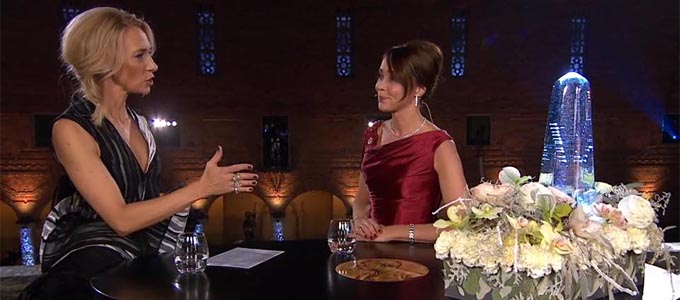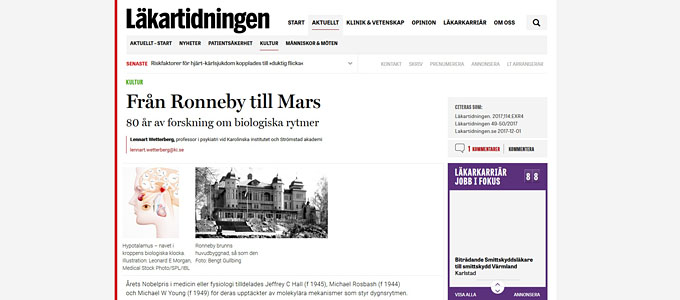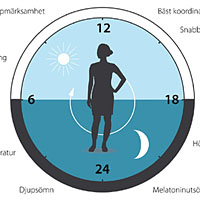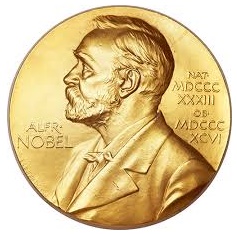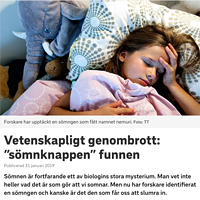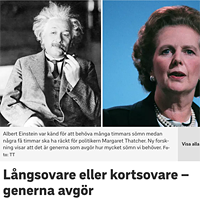At the Nobel Banquet 2017 Victoria Dyring interviewed Gabriella Lundkvist about circadian rhythms and jet lag. | -> Read more
Victoria Dyring asked what happens if we do not sleep, how we can avoid jet lag and how the research about biological rhythms can be used in the society.
The Interview starts at at 3 hr and 3 minutes. https://www.svtplay.se/video/16238474/nobel-2017-banketten/nobel-2017-banketten-10-dec-19-00-1?start=auto
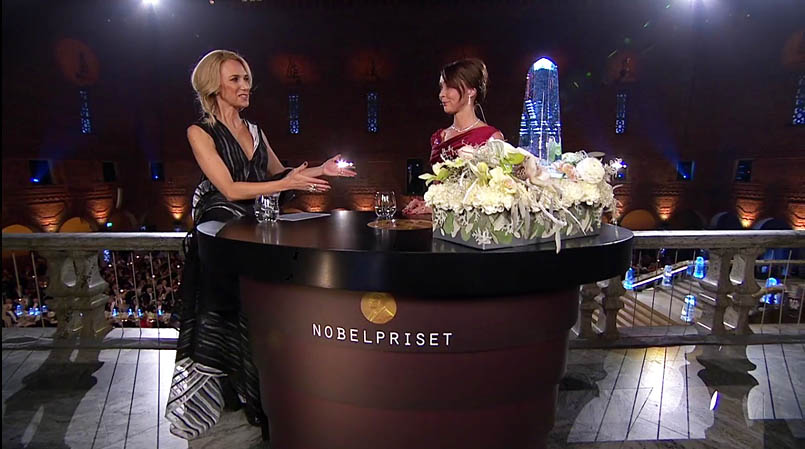
The Interview is in swedish language - here you can read the English translation:
VD: Gabriella Lundkvist, scientist in circadian rhythms, now the guests are turning the day upside down by eating a late dinner and staying up late: what is happening in their bodies?
GL: Exactly as you say, they are eating late, they are receiving light through the eyes that goes directly into the brain.
VD: It signals that it is day time, or?
GL: Yes exactly, and the guests also eat very late, which causes almost a ”mini-jet lag”.
VD: So it disturbs the clocks in the body?
GL: Yes
VD: We get bigger jet lags when we travel across time zones. What are your best tips to avoid jet lag?
GL: Avoid jet lag is not possible, then you have to avoid traveling, but if you would like to speed up the jet lag and make it go away quicker, you have to make sure that you get day light through the eyes, on the right time of the day, and also eat on the right time of the day, because the clock in the liver is synchronized by food. The clock in the brain is synchronized by light, and the liver clock gets signals from the food.
VD: And then you tell the body that is is day time?
GL: Yes, we humans are awake during the day and eat during the day, and we sleep during the night. With this method you can tell the liver ”now it is day, now I will eat breakfast or dinner”.
VD: We talked about jet lag and one may not sleep when one travels. What happens if we do not sleep?
GL: You mean if we do not sleep at all?
VD: Yes.
GL: Hm, then we die; although this does not happen in reality and is not common. But as a far stretch: we can not survive without sleep.
VD: Very quickly, what would you wish that we do with this fantastic knowledge that receives this year’s Nobel price?
GL: I would wish that we take advantage of this knowledge in our society and our societal functions, in schools, in homes for elderly, in hospitals. Increase daylight, install daylight lamps, in schools and homes for elderly..
VD: So that we use the rhythm in us?
GL: Yes, so that we stabilize our daily rhythms to become healthier; and a hot tip: REMOVE daylight savings.
VD: Oh-now we have something to think about! A big thank you, Gabriella Lundkvist- ”Skalman’s sleep and food clock” (Note: VD is referring to the children’s cartoon Bamse and the turtle called Skalman) is in other words real and we should take advantage of it?
GL: Precisely.
VD: Thank you for coming and have a nice evening!
